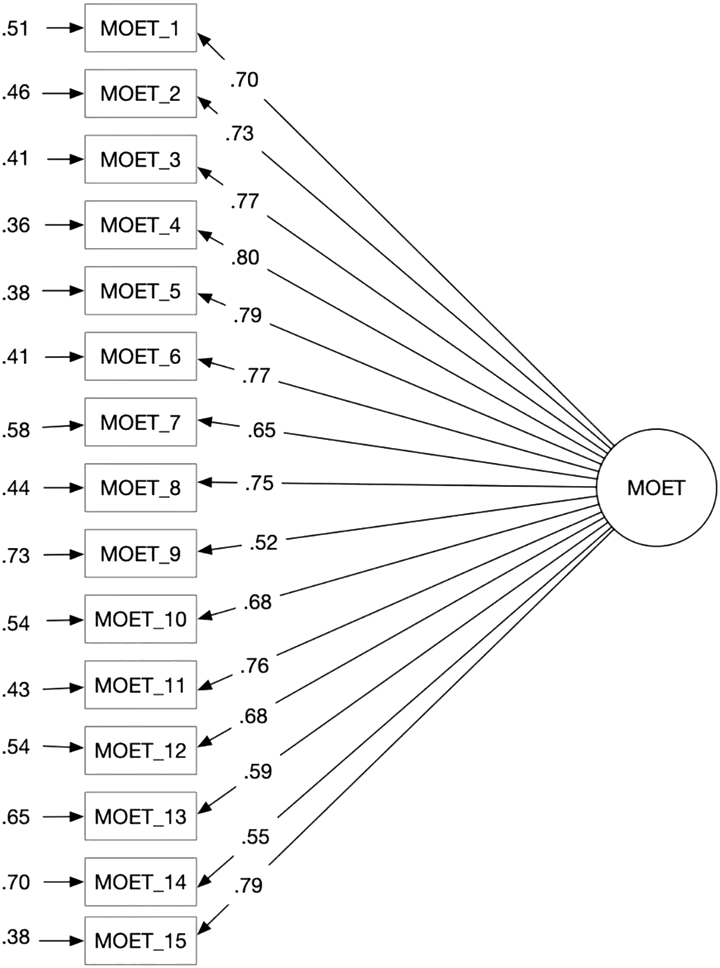Validation of the muscularity-oriented eating test in adult women in China

Abstract
Objective: Research on muscularity-oriented disordered eating has grown in recent years. However, the bulk of this research has focused on men and Western populations. Limited research is available in non-Western populations of women (e.g., China) which is likely due to the lack of valid instruments in these populations. Thus, the current study aimed to describe the validity and reliability of the Muscularity-Oriented Eating Test (MOET) in Chinese women.
Method: Two online surveys (survey one: n = 599, Mage = 29.49, SD = 7.36; survey two: n = 201, Mage = 28.42, SD = 7.76) were conducted to explore the psychometric properties of the MOET in Chinese women. In survey one, the factor structure of the MOET was examined via exploratory and confirmatory factor analyses (EFA and CFA). Internal consistency reliability and convergent and incremental validity of the MOET were also assessed. In survey two, test–retest reliability across a 2-week interval was examined.
Results: EFA and CFA provided support for the unidimensional factor structure of the MOET in Chinese adult women. The MOET presented good internal consistency and test–retest reliability and convergent validity via large, positive associations with theoretically related constructs (e.g., thinness-oriented disordered eating, drive for muscularity, and psychosocial impairment). Finally, muscularity-oriented disordered eating described unique variance in psychosocial impairment, providing support for the incremental validity of the MOET.
Discussion: The sound psychometric structure of the MOET was supported in Chinese women. Continued research is needed to describe muscularity-oriented disordered eating in Chinese women to contribute to this significant gap in the literature.